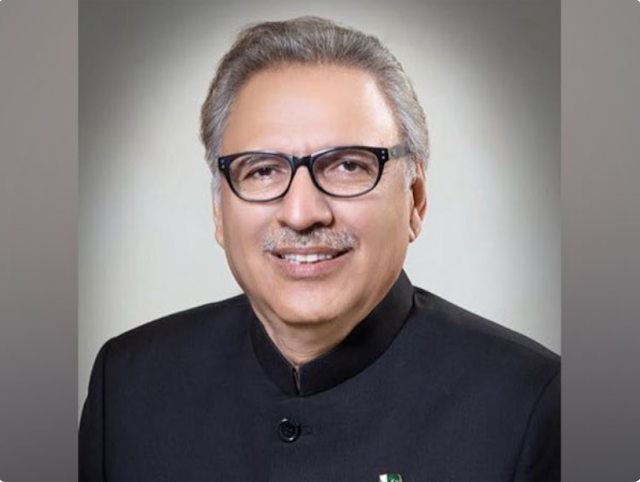Pakistan: President Alvi Summons Poll Panel Chief to Fix Date for General Election Pakistan, a country known for its vibrant political landscape, is once again on the brink of a significant democratic event: the general election. In a move that has captured the attention of the nation, President Arif Alvi has summoned the Chief Election Commissioner to discuss and finalize the date for the upcoming general election.
This
decision comes at a crucial juncture for Pakistan's democracy, as it raises
questions about the role of the President, the Election Commission, and the
overall electoral process. This article delves into the implications of
President Alvi's summons, the significance of setting the election date, and
the broader impact on Pakistan's political landscape.
The Role of the Election Commission
The
Election Commission of Pakistan (ECP) holds a pivotal role in ensuring free,
fair, and transparent elections. As an independent constitutional body, the ECP
is responsible for conducting elections at various levels, including national,
provincial, and local. Its primary objective is to uphold democratic values and
provide a level playing field for all political parties.
President's Involvement: Sign of Transparency or
Political Calculations?
President
Arif Alvi's decision to summon the Chief Election Commissioner raises eyebrows
and prompts discussions about the motivations behind this move. On one hand, it
could be interpreted as a commitment to transparency and inclusivity.
By
directly engaging with the ECP, President Alvi might be aiming to quell concerns
and skepticism surrounding the electoral process. This can serve to boost
public confidence in the upcoming elections.
On
the other hand, the President's involvement might be viewed through a political
lens. Pakistan's political landscape has witnessed frequent shifts and
realignments in recent years.
The
timing of the general election is a strategic decision that can impact campaign
strategies and voter turnout. Some analysts speculate that President Alvi's
engagement could be aimed at influencing the electoral timeline to favor
certain political considerations.
Public Expectations and Political Participation
The
Pakistani public has a vested interest in the timing of the general election.
The election date can significantly impact voter engagement, campaign dynamics,
and political discourse. A well-organized and adequately timed election process
ensures that citizens have ample time to make informed decisions and actively
participate in shaping the nation's future.
President
Alvi's decision to involve the Chief Election Commissioner in determining the
election date demonstrates a recognition of the importance of public engagement
in the democratic process. It also reflects an understanding that the election
timeline should be carefully considered to promote maximum political
participation.
Balancing Democracy and Political Strategy
The
delicate balance between democratic principles and political strategy is
underscored by the President's involvement in determining the election date.
While democratic norms advocate for transparency, inclusivity, and fairness,
political considerations often come into play when deciding the timing of
elections. The challenge lies in striking a balance between these two facets.
The
involvement of the Chief Election Commissioner in these discussions also brings
the question of the ECP's autonomy to the forefront. As an independent body,
the ECP must navigate the complexities of political dynamics while upholding
its commitment to democratic ideals.
Impact on Political Landscape
The
decision to summon the Chief Election Commissioner for discussions about the
general election date carries significant implications for Pakistan's political
landscape. The timing of the election can influence the campaigning strategies
of political parties, the voter turnout, and even the political alliances
formed in the run-up to the elections.
For
incumbent parties, the timing of the election can play a role in shaping their
narrative and policy achievements. Opposition parties, on the other hand, may
seek a timing that maximizes the chances of gaining public support and securing
seats in the legislature.
Ensuring Free and Fair Elections
Ultimately,
the overarching goal of the discussions between President Alvi and the Chief
Election Commissioner is to ensure that the upcoming general election is
conducted in a free and fair manner. By involving key stakeholders and
initiating a dialogue, there is an opportunity to address concerns, clarify
processes, and uphold the principles of democracy.
The
role of international observers and media coverage also becomes crucial in
monitoring the election process. Their presence adds an additional layer of
accountability and transparency to the proceedings, ensuring that the voices of
the Pakistani people are accurately represented.
The summoning of the Chief Election Commissioner
by President Arif Alvi to determine the date for the general election marks a
critical moment in Pakistan's democratic journey. As the nation awaits the
outcome of these discussions, it is clear that the decision on the election
date goes beyond mere logistics.
It reflects the delicate interplay between
democratic principles, political strategies, and the aspirations of the
Pakistani people. The transparent and fair execution of the upcoming general
election will not only shape the nation's political landscape but will also
reinforce Pakistan's commitment to democracy and governance by the people, for
the people.



0 Comments